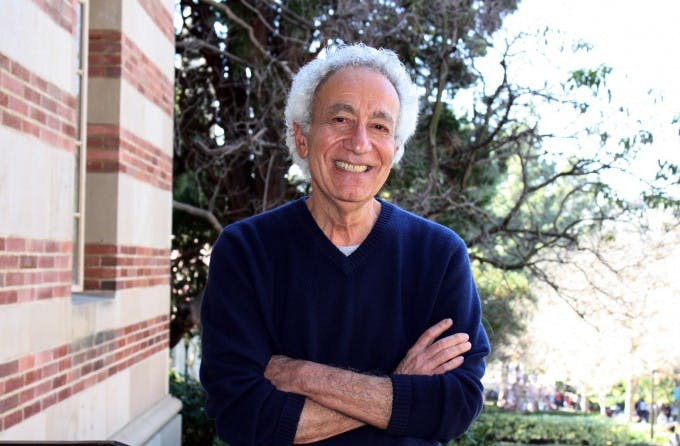When professor of education Mike Rose (’70, M.A., English; ’81, Ph.D., Educational Psychology) was a student at UCLA, he read the works of scholars who had made historic contributions to the study of education. These included Jerome Bruner, the renowned expert on cognitive and educational psychology who coined the term, “scaffolding,” and Maxine Greene, a preminent philosopher of education. At the time, he never expected that one day he would follow in their footsteps and be nominated and elected to membership in the National Academy of Education (NAEd).
“It felt like a great honor to be included,” says Rose, who was elected to the NAEd in February. “I typically am not somebody who is a big ‘joiner’ or who is deeply involved in professional associations. Some of the people who I read when I was coming up have been members of this organization. So, this recognition from the National Academy of Education surprised me in the effect it had on me.”
Tyrone Howard, professor of education, says that Rose’s election to the NAEd is “an outstanding honor for an incredible scholar.”
“Professor Rose’s contributions have had an indelible influence on the way that we think about education, learning, and intelligence,” says Howard, faculty director for Center X and director of the Black Male Institute at UCLA’s Graduate School of Education & Information Studies. “The manner in which he has shaped the GSE&IS community has been immeasurable, and I anticipate that his impact on the NAEd will be the same.”
Founded in 1965, the NAEd is a select group of approximately 200 members from throughout the United States and foreign associates who are elected to membership based on their outstanding contributions to research in education. In addition to serving on expert study panels that examine current issues in education, members are engaged in professional development programs such as the NAEd/Spencer Postdoctoral Fellowship Program and the NAEd/Spencer Dissertation Fellowship Program.
Among Professor Rose’s most significant contributions is his reevaluation of academically underprepared students. In his 1989 book, “Lives on the Boundary,” he argues that remedial students lack literacy skills not through a lack of intelligence but because of poor education and a lack of supportive social and economic conditions. In addition, Rose’s 2005 book, “The Mind at Work” celebrates the intelligence involved in blue collar work such as waitressing, plumbing, and welding, calls into question standard definitions of intelligence, the popular definition of “skilled” work, and the separation of school curriculum into vocational vs. academic learning.
During the last decade he has also written widely on the importance of public education in a democracy and on the need for a more humane philosophy of education that goes beyond economic benefit and learning as measured by standardized test scores.
Rose’s 2012 book, “Back to School: Why Everyone Deserves a Second Chance at Education” examines the importance of the return of working adults to the classroom after already making contributions to the American workforce, and the effects of their gaining an education upon the nation’s families, society, and economy.
Rose, who himself was a returning adult learner while a student at UCLA, says that his professors encouraged him to persevere.
“Like a lot of our students who are coming back to school in their 30s, I felt like life was passing me by while I was in school,” recalls Rose. “I had that awful feeling of spending all my time either at work or in a library. But it turned out that I had some teachers who really made a difference. It turned out to be a really important time for me – I learned a lot from people like Richard Shavelson and Merlin Wittrock.”
After overseeing the UCLA Freshman Writing Program as a graduate student, Rose, who had lectured in UCLA’s Department of English and the UCLA Extension Department of Humanities, was hired by the School of Education as a professor in 1994. Since then, he has served the department in various administrative positions, including Acting Division Head of the Social Research Methodology (SRM) Division.
Rose’s research has been widely recognized, and he is the recipient of the National Council of Teachers of English’s David H. Russell Award for Distinguished Research in the Teaching of English; the American Educational Research Association’s Distinguished Lectureship; UCLA’s Distinguished Teaching Award; a Guggenheim Fellowship; the Grawemeyer Award in Education; and the Commonwealth Club of California Award for Literary Excellence in Nonfiction.
